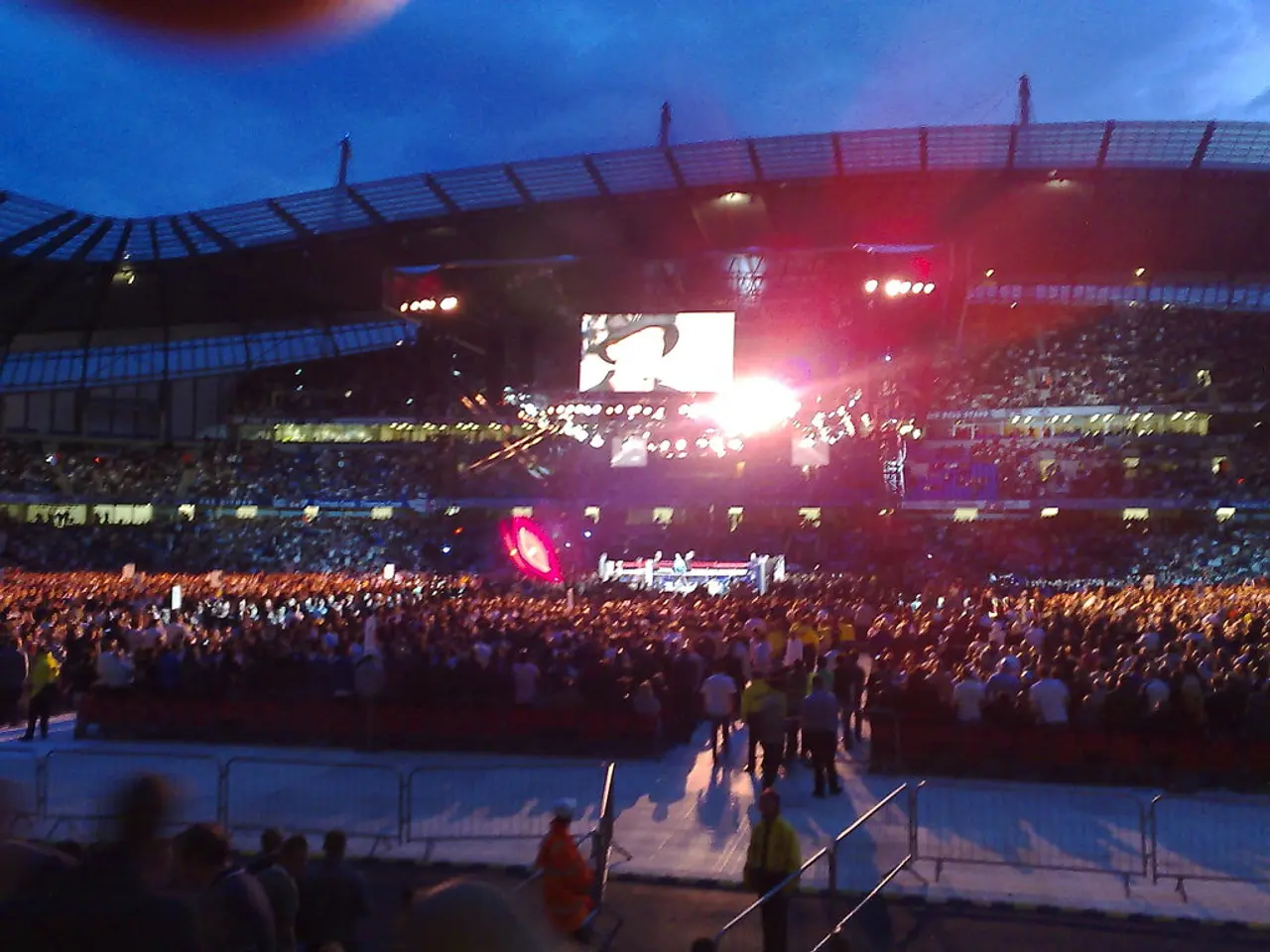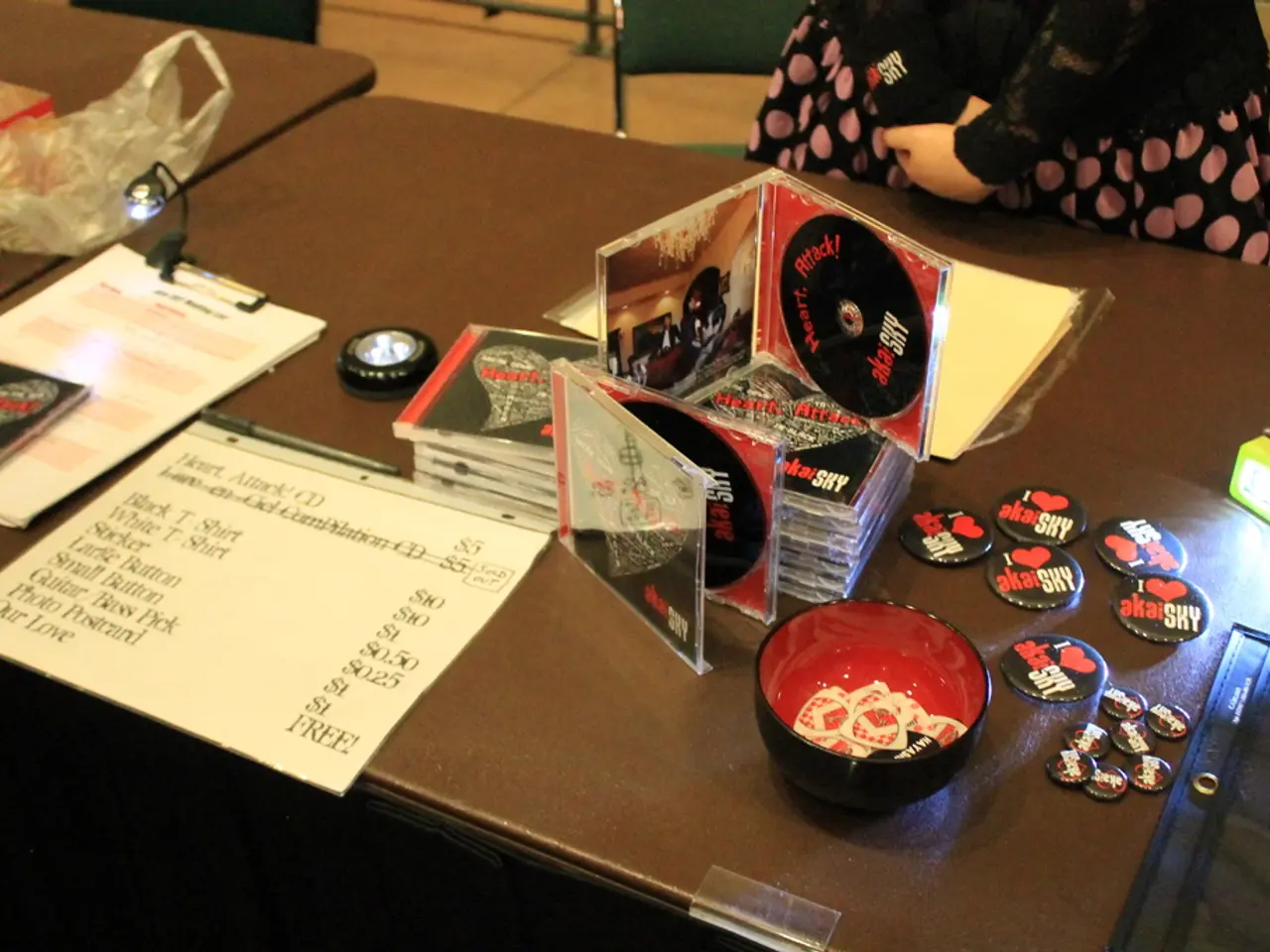The Emergence of Virtual Concerts: Are They Set to Take Over the Music Sphere?
In the ever-evolving world of music, virtual concerts have emerged as a groundbreaking innovation, offering fans a unique and immersive experience that rivals live performances. This shift, driven by technological advancements and changing consumer preferences, has transformed the landscape of the music industry.
One of the most significant advantages of virtual concerts is their accessibility. By eliminating geographical limitations, fans can attend events from anywhere in the world, making it possible for a wider audience to experience their favourite artists. In 2020, Travis Scott made history by hosting a virtual concert in the video game Fortnite, attracting an astonishing 27.7 million players[1]. Similarly, BTS's "Bang Bang Con" virtual concert amassed a whopping 50 million views globally[2].
Virtual concerts leverage the power of virtual reality (VR) and augmented reality (AR) to deliver an immersive experience. Fans can attend virtual performances in dynamic environments like Fortnite or Minecraft, enhancing their engagement with the music[1][2]. Moreover, high-end microphones, multiple cameras, and sufficient lighting ensure that these performances are delivered in high-definition quality.
However, virtual concerts are not without their challenges. Technical issues, such as stable internet connections and proper equipment, can be a barrier for some users. Additionally, issues surrounding AI-generated music, such as ownership and copyright, are being addressed through blockchain-based verification and Non-Fungible Tokens (NFTs)[2].
Live concerts, on the other hand, continue to hold an allure for many fans. The social and emotional experience they provide, including direct interaction with performers and other attendees, is a draw that many prefer. Despite the challenges posed by rising costs and logistical difficulties, there is a current surge in demand for live events, driven by a desire to make up for lost time during the pandemic[3].
Given these considerations, the future likely holds a hybrid model where both virtual and live concerts coexist. Virtual concerts will continue to evolve, offering unique experiences through advanced technologies like AR/VR and AI-generated music. Meanwhile, live concerts will remain popular for their social and emotional aspects. The live entertainment market is expected to grow significantly, driven by demand for immersive experiences and improved technologies[4].
In conclusion, virtual concerts are not a passing trend but rather an evolving part of the music industry. They will complement live concerts, offering diverse options to fans and expanding the reach of artists. By eliminating travel and accommodation expenses, providing effortless accessibility, and reducing carbon emissions associated with live concerts significantly, virtual concerts represent a new era of convenient and immersive music and entertainment.
References: [1] Fortnite x Travis Scott: Astronomical event breaks records with 27.7 million attendees, Epic Games, 2020, https://www.epicgames.com/fortnite/en-US/news/fortnite-x-travis-scott-astronomical-event-breaks-records-with-277-million-attendees [2] The Future of Music: Virtual Concerts and the Evolution of Live Entertainment, Rolling Stone, 2021, https://www.rollingstone.com/music/music-news/virtual-concerts-evolution-live-entertainment-1234608/ [3] The Return of Live Music: A Surge in Demand for Live Events, Pollstar, 2021, https://www.pollstar.com/news/the-return-of-live-music-a-surge-in-demand-for-live-events-1419945 [4] The Future of Live Entertainment: A Hybrid Model, Forbes, 2021, https://www.forbes.com/sites/forbesagencycouncil/2021/06/23/the-future-of-live-entertainment-a-hybrid-model/?sh=7e2c806f48d1
- In the realm of entertainment, news about Travis Scott hosting a virtual concert in Fortnite garnered headlines in 2020, grossing an impressive 27.7 million attendees.
- The use of technology in virtual concerts isn't limited to music; BTS's "Bang Bang Con" event accumulated 50 million views globally, showcasing how these events can reach a broader audience.
- Beyond music, virtual concerts employ virtual reality (VR) and augmented reality (AR) to offer fans an engaging, immersive experience, even in dynamic game environments like Fortnite and Minecraft.
- While virtual concerts present numerous advantages, such as accessibility and reduced carbon emissions, they also pose challenges like technical issues and AI-generated music's impact on ownership and copyright, which are being addressed through innovative solutions like blockchain and Non-Fungible Tokens (NFTs).




